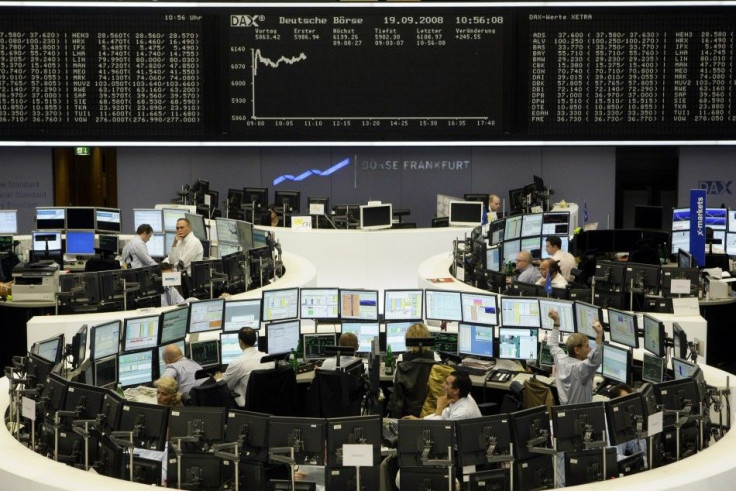Europe's Markets Mixed Tuesday at Mid-Day

(Reuters) - European stocks edged up in thin pre-holiday trade on Tuesday, boosted by a successful Spanish debt auction and a sharp rise in German business sentiment, though strategists said the continuing euro zone debt crisis would limit any gains.
Spanish short-term financing costs more than halved from a month earlier at auction, with analysts saying banks planned to tap cheap liquidity from the European Central Bank to purchase the relatively high yielding paper.
Spain's equity benchmark IBEX outperformed, up 1.3 percent. Heavyweight Spanish banks Banco Santander and BBVA rose 2.1 and 2.2 percent respectively.
The ECB will offer euro zone banks refinancing loans of up to three years on Dec. 21 at a rate of 1 percent in an unprecedented move to fend off a credit crunch that could stall the currency bloc's economy.
Spanish bond yields have tumbled from euro-era highs since the ECB announcement.
Whilst the Spanish (debt) auction is being seen positively, clearly there is an impact on its 'success' from the commencement of the ECB's (cheap liquidity programme), Joshua Raymond, Chief Market Strategist, City Index, said.
Other euro zone banks to gain included France's BNP Paribas , and Italy's Intesa SanPaolo and UniCredit , up between 3.9 and 4.3 percent, with all three adding to gains on Monday.
The STOXX euro zone bank index rose 2.3 percent, but is on track to record a loss of nearly 40 percent for 2011, hurt by fears the euro zone sovereign debt crisis could to lead to massive defaults.
GERMAN IFO
Data showed German business sentiment rose sharply in December, defying expectations for a decline and underscoring the strength of Europe's biggest economy.
The Munich-based Ifo think tank said its business climate index, based on a monthly survey of some 7,000 companies, rose to 107.2 in December from 106.6 in November.
After a rough patch with a long list of data showing weaker economic numbers, there is now a silver lining ... It looks like Germany will be able to avoid slipping into recession, LBBW economist Jens-Oliver Niklasch said.
At 1205 GMT the FTSEurofirst 300 index of top European shares was up 0.4 percent at 960.79 points, and is on track to lose more than 14 percent in 2011.
Strategists pointed to low trading volumes and said the main issues in investors' minds were the euro zone debt crisis, disappointment for some investors about the ECB's level of bond buying, and lack of economic growth.
There's still a focus on whether we get some kind of resolution and questions about whether the ECB will take a more proactive stance, and questions about slow economic growth, said Alec Letchfield, Chief Investment Officer, Wealth at HSBC Asset Management.
He added that cheap valuations would support equities in the longer term but that he was focusing on defensive and higher yielding stocks.
Equity valuations on Thomson Reuters Datastream showed the STOXX Europe 600 carrying a one-year forward price-to-earnings of 9.4 against a 10-year average of more than 13.
European stocks had slipped in early trade, as investors fretted about comments made late on Monday by European Central Bank President Mario Draghi, who poured cold water on hopes for more aggressive bond purchases.
Draghi said bond market pressure on the euro zone would be very significant in the first quarter of next year, but gave no hint the central bank was about to change tack on its bond-buying programme, sending the euro currency flirting with an 11-month low hit last week.
The euro rose on Tuesday, and its 66-day rolling correlation with the FTSEurofirst 300 remained relatively high, at 0.79.
Healthcare stocks slipped after AstraZeneca unveiled a charge related to trouble in its drug pipeline.
Shares in the drugmaker dropped 2 percent after it said cancer drug olaparib would not progress into final Phase III testing, while experimental antidepressant TC-5214 failed to meet its goal in a second Phase III study.
Rivals also lost ground, with GlaxoSmithKline down 1.7 percent.
--
© Copyright Thomson Reuters {{Year}}. All rights reserved.





















